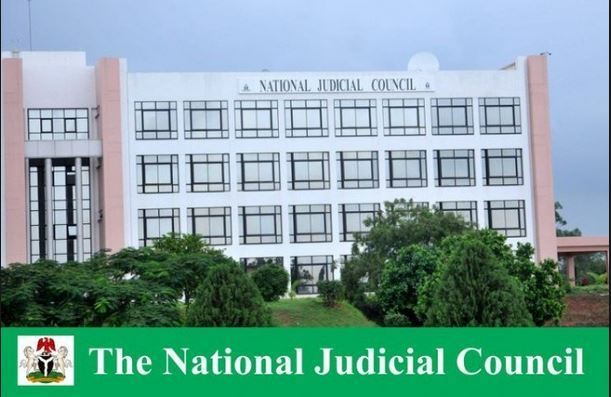
The National Judicial Council (NJC) has declared the appointment of Justice Theophilus Nzeukwu as Acting Chief Judge of Imo State null and void, directing Governor Hope Uzodinma to immediately reverse the decision and appoint the most senior judicial officer in the state, in line with the provisions of the 1999 Constitution.
The decision, which was part of the resolutions passed during the NJC’s 108th meeting held on April 29 and 30, 2025, under the chairmanship of the Chief Justice of Nigeria, Justice Kudirat Kekere-Ekun, was based on the constitutional requirement for appointing an acting chief judge when the position is vacant.
In a statement issued by the NJC’s Deputy Director of Information, Kemi Ogedengbe Babalola, the Council instructed Imo State Governor Uzodinma to appoint the most senior judge of the High Court as the Acting Chief Judge.
The statement quoted the relevant section of the Constitution, which mandates that when the office of the Chief Judge is vacant or the holder is unable to perform their duties, the Governor must appoint the most senior judge to perform the functions of the office.
The statement read, “If the office of the Chief Judge of a state is vacant or if the person holding the office is for any reason unable to perform the functions of the office, then, until a person has been appointed to and has assumed the functions of that office, or until the person holding the office has resumed those functions, the governor shall appoint the most senior Judge of the High Court to perform those functions.”
The NJC also directed Justice Nzeukwu to show cause within seven days why disciplinary action should not be taken against him for presenting himself as the Acting Chief Judge, contrary to constitutional stipulations.
Similarly, Justice V. U. Okorie, the President of the Customary Court of Appeal in Imo State, was asked to show cause for his involvement in recommending Nzeukwu’s appointment.
Both judges were given a seven-day period to respond to the allegations, and the NJC has expressed its intention to take appropriate disciplinary action if necessary.
In a broader move to address judicial misconduct, the NJC also announced the suspension of three judicial officers, including a sitting Justice of the Court of Appeal.
The suspended officials include Justice Jane E. Inyang, who was found guilty of issuing inappropriate orders, Justice Inyang Ekwo of the Federal High Court, and Justice Aminu Baffa Aliyu of the Federal High Court.
Justice Inyang was suspended for one year without pay due to her abuse of office in issuing ex parte orders for the sale of properties during her tenure as a Federal High Court judge.
Similarly, Justice Inyang Ekwo was suspended for one year for delivering a ruling without hearing from the parties involved, a violation of judicial conduct.
Justice Aminu Baffa Aliyu was also found guilty of granting orders that restrained security agencies from performing their statutory duties and was suspended for one year, with a three-year watchlist placed on him.
The NJC also made strides towards greater transparency in judicial appointments. It was announced that henceforth, the names of candidates being considered for judicial appointments will be published for public input.
The aim is to solicit comments and objections from the public regarding the integrity, reputation, and competence of judicial candidates.
In addition, the NJC addressed several petitions, including those challenging the recruitment process for Federal High Court judges. A petition concerning the 2022 judicial appointment exercise in Zamfara State was dismissed, with the petitioner found to be making unsubstantiated claims.
The NJC accepted the voluntary retirement of Justice Babatunde Bakre and approved a name change for Justice I. A. Osayande of the Edo State High Court, who will now be known as Hon. Justice I. A. Dika.



